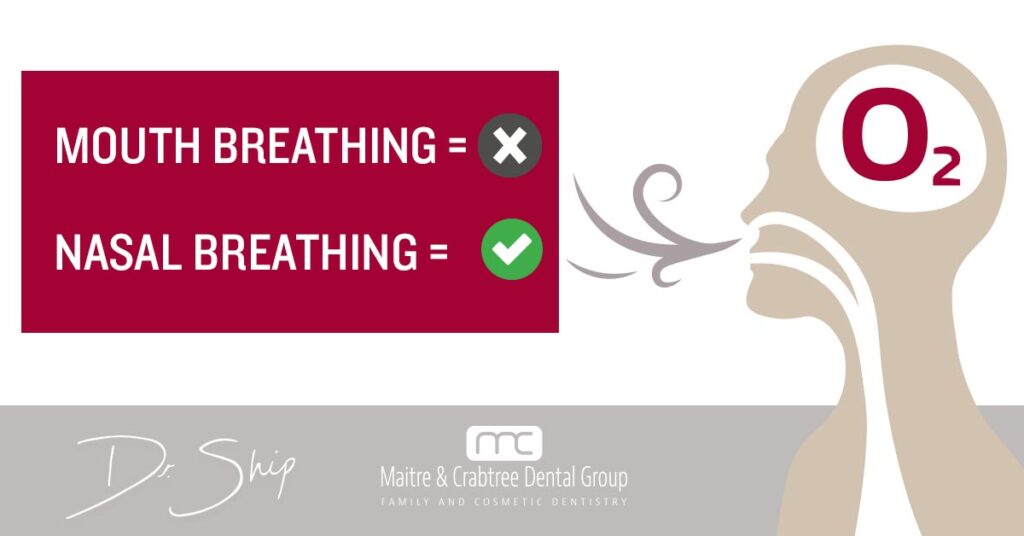18 Feb Part One – Sleep and Oral Health: What’s the Connection?
Sleep is crucial to our overall health, and when it’s interrupted it can negatively impact our bodies in more ways than one. According to the American Academy of Sleep Medicine, sleep apnea is characterized by reoccurring breathing interruptions (apneas) during sleep cycles. These apneas prevent oxygen from reaching the lungs and are caused by tissue collapses of the airway related to weak airway muscles, a large tongue, a small jaw, snoring, being overweight or other risk factors. These characteristics can interrupt breathing and can cause the brain to wake up the body during sleep cycles.
What’s the connection to dental health? Well, sleep apnea can contribute to oral health problems, and dental problems can also cause sleep apnea. As dentists, we should be the gatekeeper between our patients and other physicians such as sleep specialists, ENTs, etc.

When we breathe through our mouth, a higher volume of air goes into our body than when we breathe through our nose. This creates negative pressure. Your airway begins to close as a result of this, causing your body to fight it while you are sleeping. The body’s oxygen saturation then begins to drop. When we are constantly fighting to maintain an open airway, we never get into the proper stage of sleep, specifically REM sleep. This is our sympathetic (fight or flight response) nervous system taking over. We are supposed to be in a parasympathetic (rest and digest) state. That being said, we are literally “fighting for survival” when our sympathetic nervous system takes over. The longest stage of REM sleep typically occurs four hours after going to bed. At this time, our antidiuretic hormone levels are depleted, and we get up to use the bathroom (usually around 3:00 a.m. for most people). Due to the middle-of-the-night wake window, we never get into the full REM sleep our body needs.
Without quality sleep we see an increase in inflammation in our mouth, throat and throughout our entire body. Hormone regulation is altered since this is the state of sleep where hormones are released at their highest levels. The hormone that has the biggest impact on inflammation is cortisol. Cortisol is responsible for healing our body from stress, as well as properly utilization of carbohydrates, fats and proteins. It also helps control cardiac output and blood pressure in response to stress. Continually interrupted sleep patterns can cause increased stress and anxiety, temporal headaches, chronic fatigue syndrome and fibromyalgia.
In my next blog, I will provide specific patient examples on how disrupted sleep and mouth breathing can affect your dental health and what I can do to help you resolve those issues.

